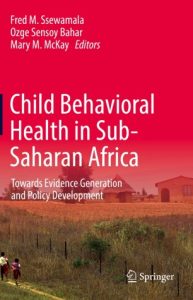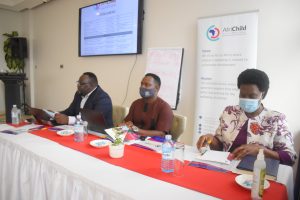According to Mathew Amollo, the research manager at AfriChild Centre, the objective of the training was to build capacities of university staff in conducting participatory child-focused research. “When we conducted a training needs assessment, findings revealed that university faculties have a partial, disciplinary-shaped perspective on
TRAINING CONTENT
The training was loaded with different topics including ethics in research; models of child involvement in research; research paradigms and grants writing among others. While doing research with children,
WHY CHILD FOCUSED RESEARCH NOW

A team from Uganda Christian University discussing during the training
A paradigm shift is happening in the world of research. Ugandan researchers are moving away from conducting research on children to doing research with children. Simply put, doing research with children engages children as architects of the research rather than just being researched on. Children constitute a significant proportion of our communities and the natural way to obtain information about them is to do work with them as researchers and informants. “Child-focused research is vital for understanding children’s lives and ensuring that they participate in issues that affect them,” Prof Katahoire said. In his closing remarks at the end of the training, Prof. Peter Ubomba urged the AfriChild Centre to create avenues where academics interface with policy makers.






